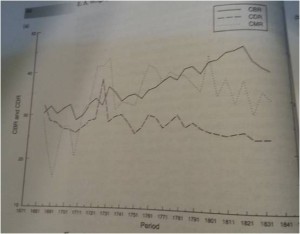Efficiency
Economists have an affinity for the concept of efficiency, but often this is quite a vague concept. In this article we attempt to explain a few different types of efficiency/inefficiencies and show the different situations in which the word “efficiency” should be used.
Before we start it is important to remember why inefficiencies are bad and why a healthy economy should strive to be efficient. Lionel Robbins defined economics as the study of the allocation of scarce resources. Therefore an economist’s job is to ensure that these scarce resources are used to their best potential, therefore waste should be minimised and this can be achieved through efficient use of materials. [...]
